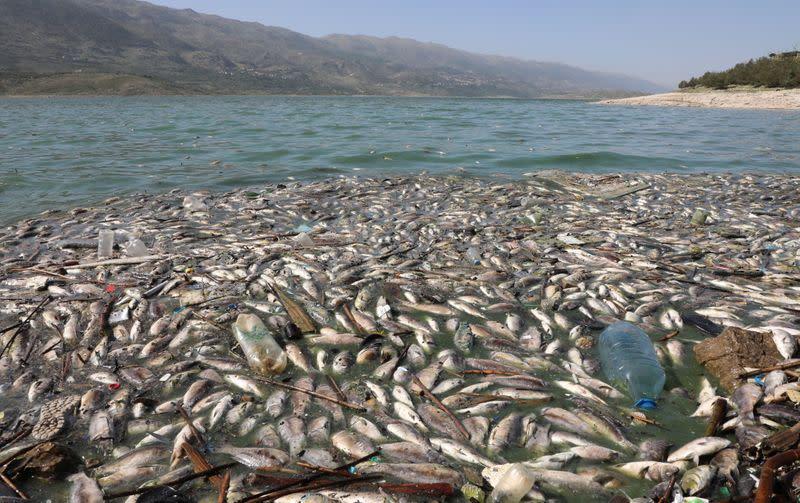Tonnes of dead fish wash up on shore of polluted Lebanese lake
By Patryk Krych | The World Daily | APRIL 30th 2021
Due to pollution, tonnes of dead fish have ended up piling up on the banks of the Litani river in Lebanon, the longest river in the country, sparking renewed fears over environmental wellness.
Volunteering projects have already begun cropping up for the task of clearing off the banks of Lebanon’s Litani river, near the Qaraoun lake. The smell of the massive collection of fish carcasses has already begun to spread and cause distress to residents of a village nearby. Officially, the blame for the incident has been placed on pollution.
Environmental groups and activists in Lebanon have been warning authorities and companies about the dangerous repercussions of pollution to the rivers’ waters for years now. The dumping of waste and sewage into the waters is the primary cause of the pollution, according to the activists.
“This phenomenon appeared on the shore of the lake several days ago,” said a local activist, Ahmad Askar. “The fish started floating up, and in abnormal quantities...It’s unacceptable.”
The dire need to quickly clean up the mess goes beyond the concern over a spread of unpleasant smells – the carcasses of the fish had begun to decay extremely quickly. Flies were quick to set in, speeding up the decomposition process and adding further risk of pollution to the already filthy river near which a number of people live.
“It's our third day here picking up dead fish,” said Nassrallah el-Hajj, from the Litani River Authority, having added that thus far they had already “carried away around 40 tons” of the rotting carcasses. Volunteers got to work with shovels and wheelbarrows, removing the many decaying fish carcasses by way of a waiting truck.
The corpses have been piling up for days now, slowly and gradually, leading to the Litani River Authority and the Society for the Protection of Nature in Lebanon giving out a warning on Friday which stated that fishing along the river ought to be avoided due to the rise of “an aggravated disaster that threatens public health.”
The calls for fishing to be banned along the river and lake had at first been sparked by fears of a “viral epidemic” affecting the river. It appeared as though the ‘disease’ had only affected carp, as four other species of fish were observed to be unaffected.






